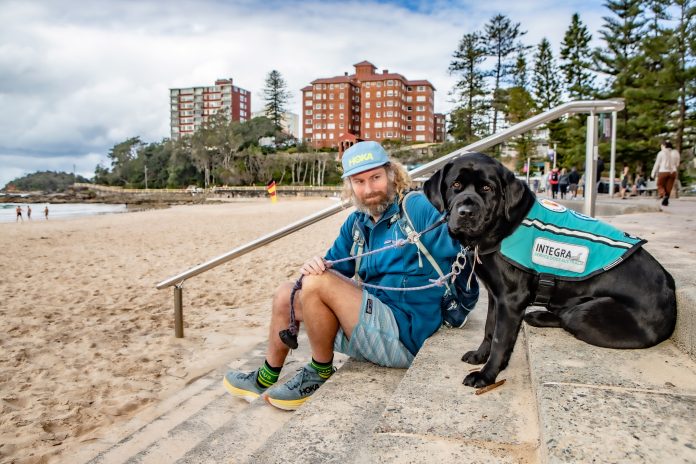Scott Reynolds, a naval veteran who lives on the Northern Beaches, is calling on local business owners and their staff to become better informed of the rights of Assistance Dogs to enter their premises.
Scott is a co-founder of the Saltwater Veterans, a group of former military personnel that sail yachts recreationally in local waters. He is accompanied most of the time by Reggie, a Labrador that is uniquely qualified for her role.
But back on land, the veteran says Assistance Dog owners are repeatedly – and illegally – prevented from entering cafes and restaurants, walking on the beach, or travelling on public transport with their companion animals in the Manly area, as well as wider Sydney.
Scott showed Manly Observer a number of videos he’s taken in which shopkeepers, bus drivers and restaurant employees have adamantly refused him and his dog on their premises. The film footage reveals them ignoring Scott’s identity card and his polite explanations that Reggie is legally allowed to accompany him inside.
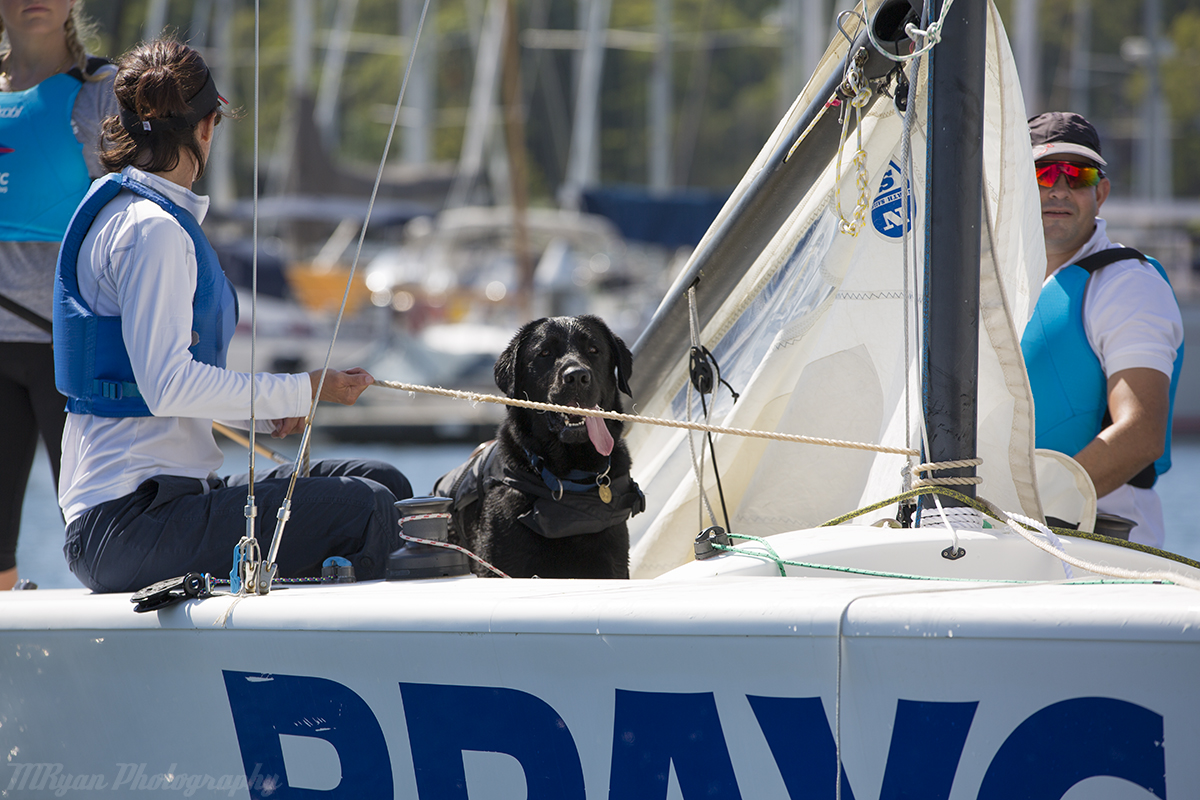
Unfortunately, most refusals were in central Manly. Manly Observer has no intention to name-and-shame those venues in Scott’s videos that refuse to allow people with Assistance Dogs entry as clearly education is what’s needed most.
“I went to a restaurant on Sydney Road the other day, a wedding anniversary with my wife, when we were told we had to leave because of the dog.
“I identified that Reggie is a service dog. I asked them if they were aware that we’re legally allowed to be inside with the dog, we’re protected by Law, and that they are legally protected as well.
“However, they insisted they were scared of the Council – they believed if a Council inspector came in they’d get a fine.
“It’s the Northern Beaches Council that’s responsible for all the food health and safety-type compliance for restaurants and cafés on the Northern Beaches. So, Council has the capacity to educate through things like the Manly Business Chamber.
“To me this issue could be resolved by a simple education process, which the Council needs to publish regularly in their newsletter, stating: “Do you know the legal rights and public access for Assistance Dogs?”
Scott thinks a more comprehensive campaign might be fruitful.
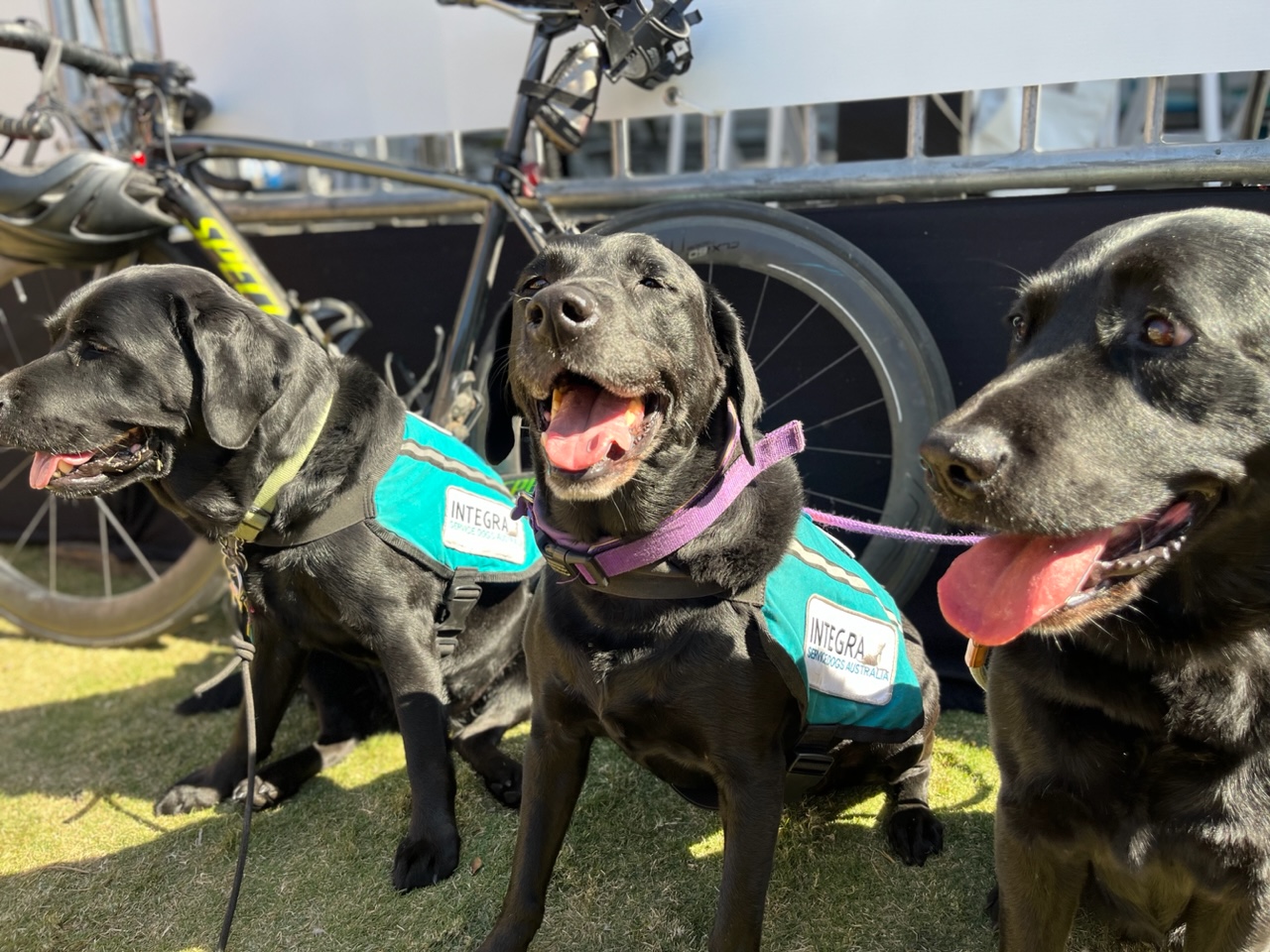
What’s an assistance dog anyway?
Most people are aware of the importance of Guide Dogs for the vision-impaired (aka ‘Seeing Eye’ dogs), which are granted access to a wide range of venues, diners and public transport.
It gets a little more confusing once you enter the area of assistance dogs as there are a number of organisations providing the training and accreditation in each state and a wider variety of disabilities they work with.
There is no national register for assistance dogs, which means there are a number of different ways to verify a legitimate assistance dog and rules and forms of accreditation vary between states, which makes it particularly confusing.
An assistance animal in NSW is a dog or other animal that is either:
- accredited under a law of a State or Territory that provides for the accreditation of animals trained to assist a person with a disability to alleviate the effect of that disability; OR
- accredited by an animal training organisation prescribed by the Commonwealth; OR
- trained to assist a person with a disability to alleviate the effect of that disability, and, to meet standards of hygiene and behaviour appropriate for an animal in a public place.
This is based on how assistance animals are defined in Commonwealth law (Disability Discrimination Act 1992).
While the identification issue may be fraught, Scott hopes his local council (Northern Beaches) might invest in helping local businesses learn some of the common ways to identify these service animals, and also to highlight their legal right to enter their premises.
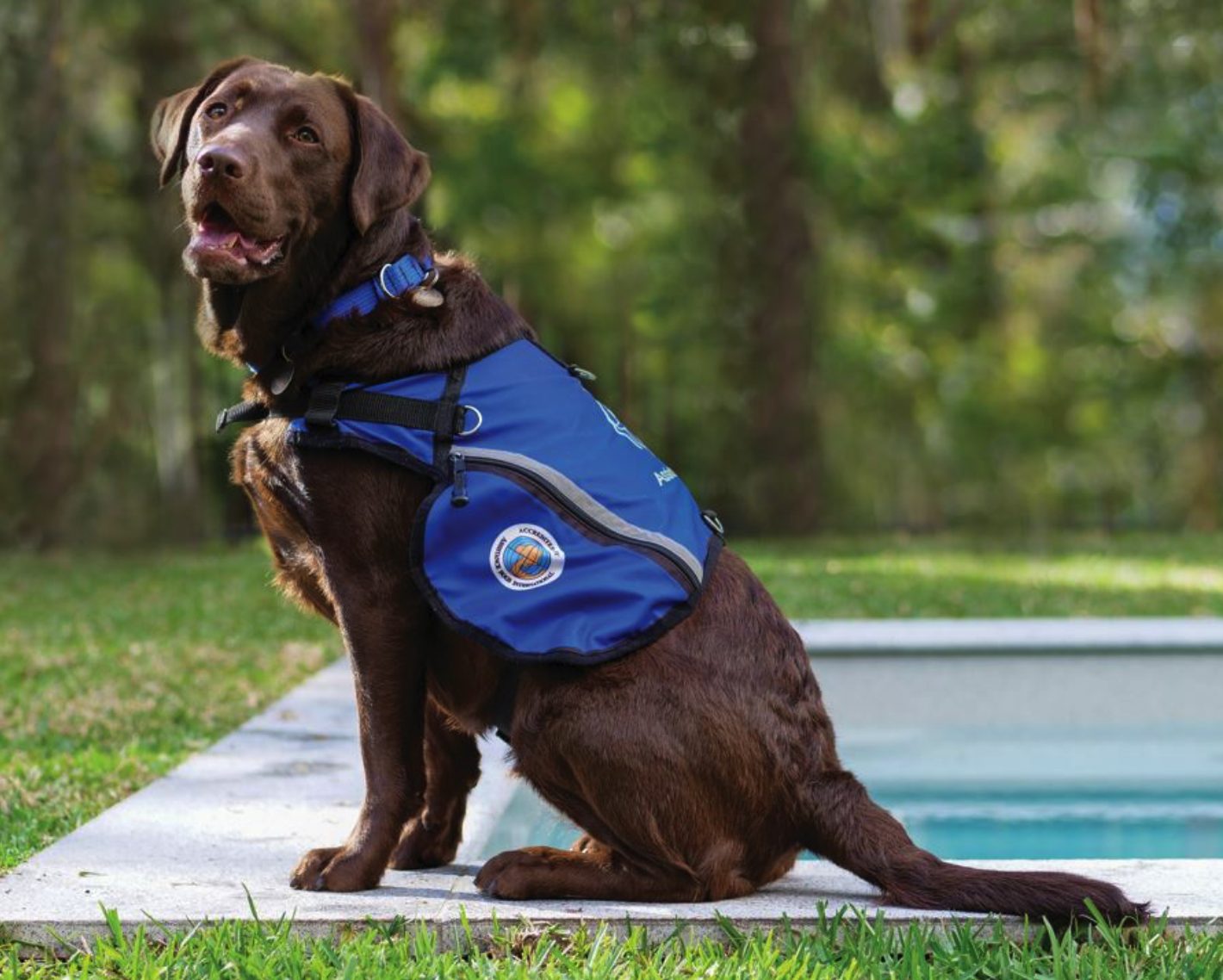
Locally, for example, many assistance dogs are likely to be trained by one of the largest organisations, Assistance Dogs Australia (Transparency note: Editor Kim Smee just this year stepped down as director on the board of this national charity).
They usually wear distinctive blue (in training light blue and in service dark blue) vests and help those in wheelchairs or living with autism or Post-Traumatic Stress Disorder (PTSD) live more independent lives. Integra also provide dogs that assist veterans like Scott with PTSD, and they have light blue vests with certification patches. Both forms can legally accompany their handlers into restaurants and on public transport.
Scott explains, “In the [military] Veterans’ case, most of our dogs are around post-traumatic stress. So under the Department of Veterans’ Affairs my dog has been provided as a psychiatric Assistance Dog for PTSD…
“There are a growing number of dogs that are out there supporting veterans because we’ve just come back from 20-something years at war in Afghanistan and Iraq…”
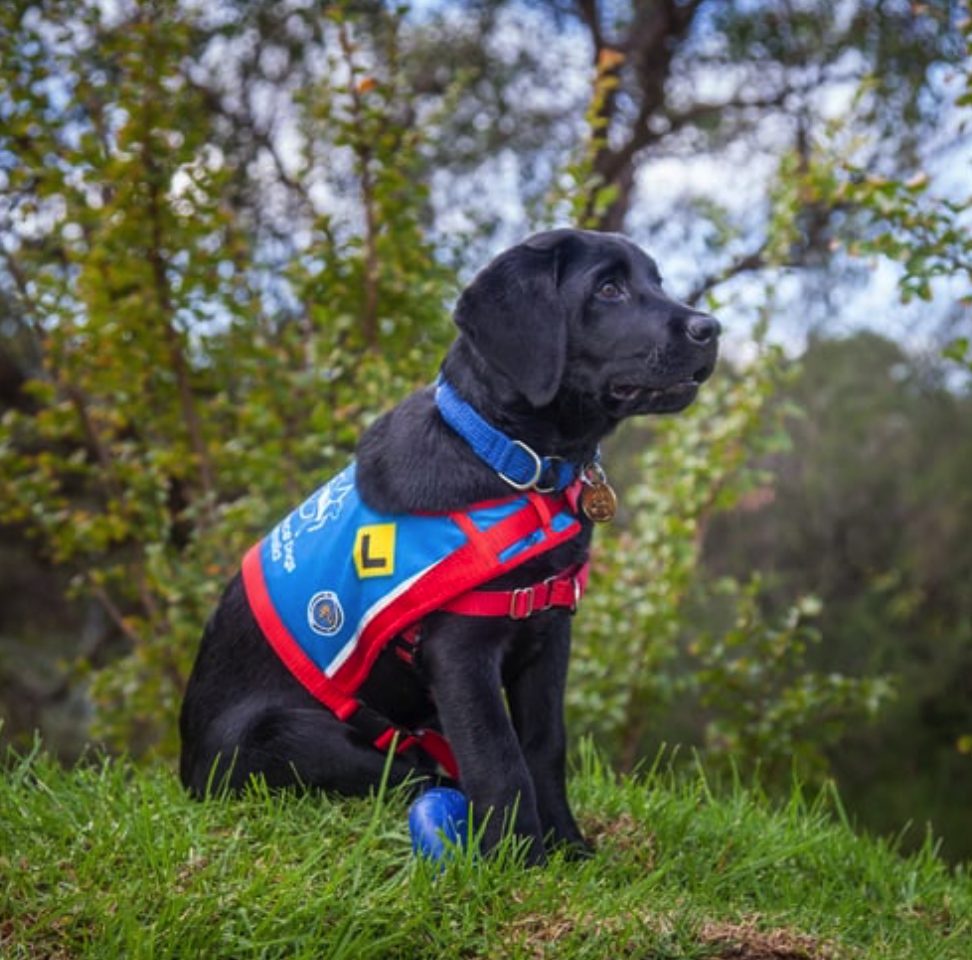
Scott drew a distinction between dogs used for therapy and those for daily assistance. “You can also have Therapy Dogs, which I don’t believe have any right of public access, but they will typically be endorsed at a local level for things like being in a hospital. Sometimes you’ll see dogs roam around hospital wards creating warm and fuzzy feelings for the patients. If they wear a jacket, it won’t necessarily allow them to ride on public transport or go on aeroplanes, etc.
“And then there are people who will claim their own pets to be emotional support animals. These animals have basically no rights; your goldfish could be an emotional support animal. And that’s fine because pets provide a lot of emotional support and friendship, but when we look at the Commonwealth Disability Act, they don’t actually come under the legal protections of that.”
Where are assistance dogs allowed?
Assistance Dogs are legislated by Federal Law under the Disability Discrimination Act 1992 (DDA 1992) and are allowed in most environments with their human handlers, as well as in cinemas and on planes (with prior notification).
Each state has its own regulations too – in NSW it’s known as the Companion Animals Act 1998.
“The DDA allows qualified Assistance dogs to accompany their handler into all public spaces. The only exceptions to this may be spaces in which a person’s disability is being addressed by other means, or areas with stringent sterility requirements,” Assistance Dogs Australia explains.
The non-profit agency continues, “Assistance Dogs are a necessary aid to allow a person with a disability to engage in their community. You wouldn’t ask someone who needs a walking stick to leave it at the door.”
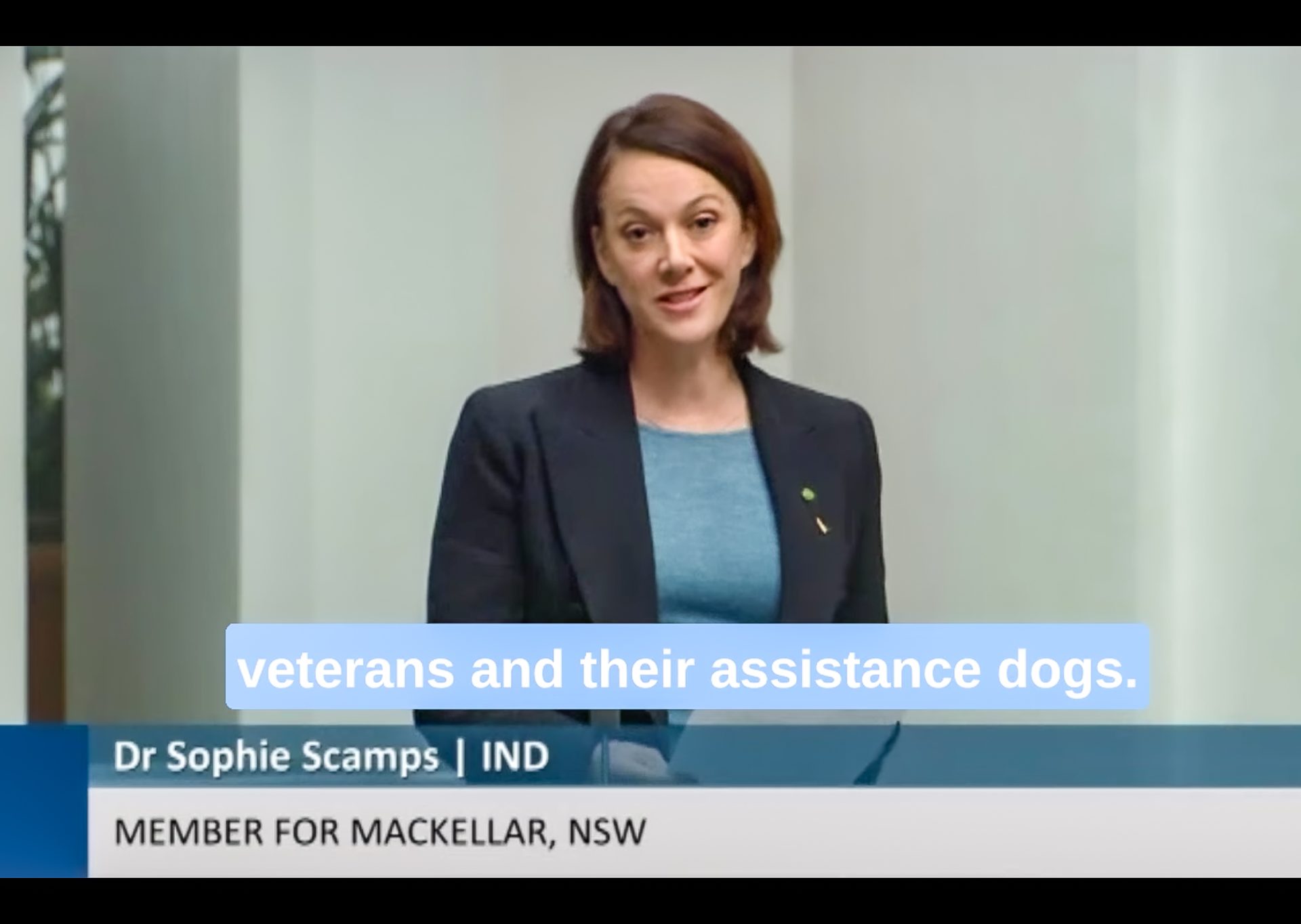
MPs show support
Dr Sophie Scamps, the Federal MP for Mackellar, has taken the plight of Assistance Dog owners to heart, raising the issue in Parliament, where, back in August 2023, she spoke of Scott’s public awareness campaign, mentioning him by name.
Dr Scamps also told Manly Observer, “Assistance Dogs can transform the lives of people by allowing them to engage in community life in a way they would not otherwise be able to do. However, in my role as Mackellar’s MP I’ve been hearing that all too often people with Assistance Dogs are being refused entry to public places and restaurants – which can be distressing for those who depend on their dogs.”
Manly MP James Griffin is also keenly aware of the difficulties Assistance Dog owners face. He told Manly Observer, “As the former Parliamentary Secretary for Veterans this is one area that I am passionate about. Earlier this year I met with Scott to discuss a recent experience involving him being refused entry at a local site in the presence of his child. This incident naturally caused him much distress.
“At our meeting Scott gave me one of the Assistance Dogs-friendly stickers which my Electorate office front door proudly wears.”
He added, “as an aside, last week I was contacted by a constituent who outlined in her email an experience she had with a local grocery store who had refused her entry with her clearly labelled Assistance Dog. Our office contacted the owner expressing my concern for the constituent’s experience. The owner agreed to speak to all staff to ensure they were more mindful of Assistance Dogs and their ability to enter retail stores.”
Dr Scamps also agrees that an education program would be beneficial to raise public awareness. She told Manly Observer, “I believe a community-wide information campaign about the needs and rights of people with Assistance Dogs under the Disability Discrimination Act would be constructive. After all we don’t ask people to leave their wheelchair at the door.”
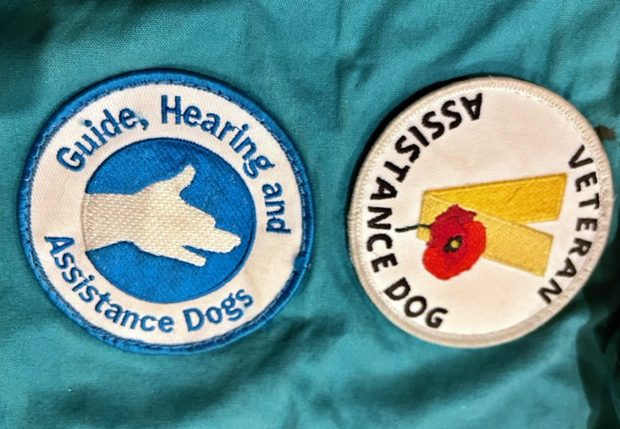
Next steps?
Scott has written to Northern Beaches Council suggesting they lead a concerted program to raise public awareness of Assistance Dogs through emails, newsletters and on their website and social media pages – essentially to let local businesses know they won’t ‘get in trouble’ if they let an assistance dog inside, but they can if they deny entry.
It could include details of the benefits of the Assistance Dogs scheme, illustrated with various legal forms of identification used for the animals in NSW.
Scott also suggested an identifiable sticker be affixed to restaurant windows and other venues declaring that the premises are Assistance Dogs-friendly.
“The council has a duty or responsibility to educate,” he asserted.
Council response
Manly Observer contacted Northern Beaches Council and inquired whether they might launch a series of communications to better inform people about the role of Assistance Dogs and their legal access to enter venues and travel on public transport.
A spokesperson replied, “Council is supportive of Assistance Dogs and continues to educate the community on the rights of a person with a disability to be accompanied by their Assistance Dog in public places and on public transport. Entry cannot be refused without a reasonable cause.
“Council has also worked with local businesses to educate them on the rights of people with a disability to be accompanied by Assistance Dogs at their premises. This has included outreach through our Beaches Biz newsletter.
“Mr Reynolds has advocated on this issue and Council has assisted him with his enquiries over the years. Council appreciates his efforts in educating the community on this important issue.”
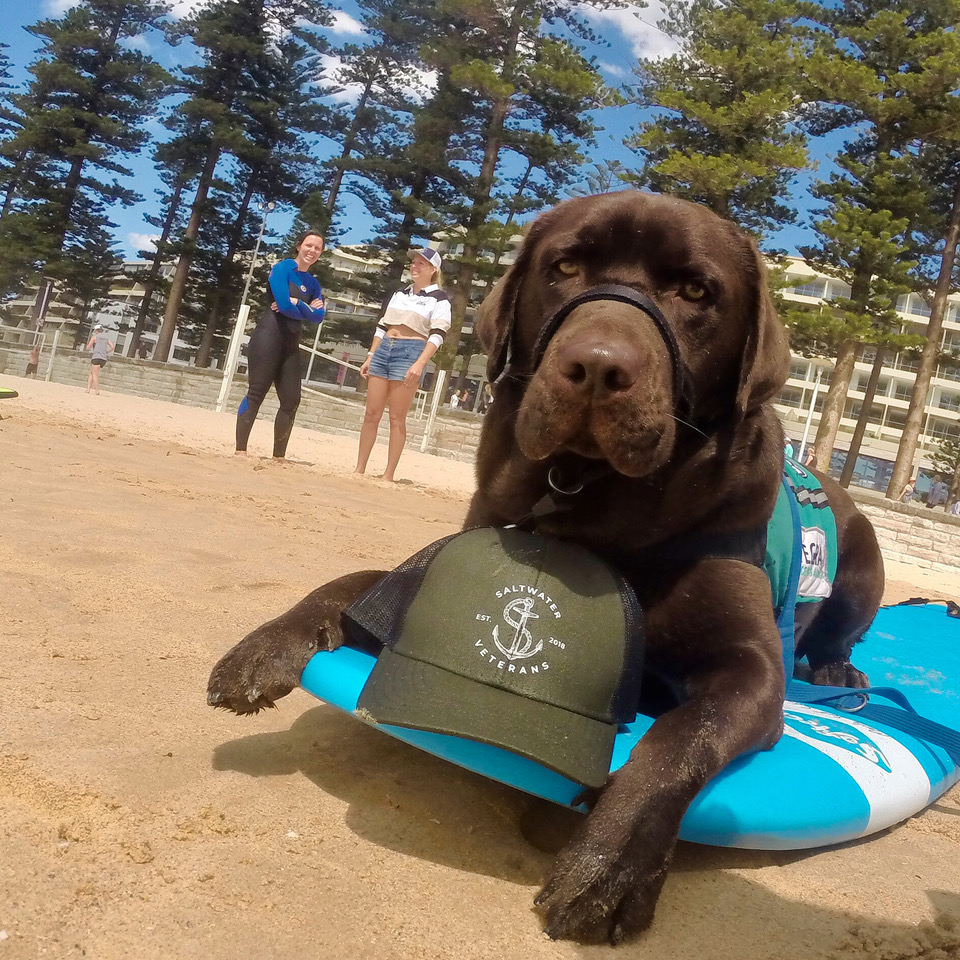
Mayor Sue Heins added, “Assistance Dogs are truly amazing animals providing a vital service in our community. Council respects and promotes the rights of people with Assistance Dogs to freely enter public places.
“We encourage local businesses to continue to welcome Assistance Dogs into their premises, just as Council staff continue to welcome them into our own facilities and venues.”
Information on public access rights of Assistance dogs: https://www.Assistancedogs.org.au/about-us/public-access-rights/
Article written by Alec Smart with Kim Smee


